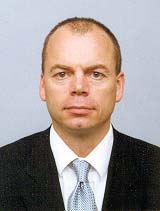Political crises have become the norm in Estonia over the past few weeks, but they have not been in the hallowed halls of the Riigikogu; rather, unsettling events have been occurring at the local level. The collapse of the ruling coalition in the seaside city of Pärnu has alarmed those in national politics, as the basis of the national coalition was broken with intrigues by the opposition. In response, the opposition-led city government of Narva is facing an imminent collapse with defections of its own. However, the biggest local crisis that has broken out is occurring in the shadow of the Riigikogu itself, at the Tallinn City Council.
The national implications of a crisis in Tallinn are significant, as the City Council is seen as the second most important chamber of power in Estonia, both figuratively and politically. The body possesses substantial power over city properties and institutions, far more lucrative for the unscrupulous politician than national service. Its elections are taken as seriously as a parliamentary vote, with the top members of all political parties going head-to-head against each other to shore up strength for their parties. In some ways, its seats are harder fought for than those in the Riigikogu. Thus the significance of a political crisis and possible shift in power is great.
Centre Party leader Edgar Savisaar, seen as the head of the opposition, has been indulging in intrigue after intrigue to break the national ruling coalition (the Pro Patria Union of Prime Minister Mart Laar, the Reform Party of Finance Minister Siim Kallas and Mõõdukad [roughly translated as "Moderates"]) to push his own Centre Party into power. Savisaar remains indignant that, as the top vote-getter in the March 1999 general elections, his party was not allowed the chance to form a government due to the three-party coalition that secured more than a majority of seats in the Riigikogu.
His bid to keep control of the Tallinn City Council also failed in the October 2000 local elections, as the coalition pulled a trick out of Savisaar's own book and stole the deciding vote in their favour in the 64-seat council. This is a personal grudge for Savisaar to break the three-party coalition, first locally, then nationally.
Tallinn's complicated picture
The October 2000 elections turned out rather well for the three-party coalition that took control of the Riigikogu seven months earlier. The "freshman slump" did not hurt the total strength of the coalition, as was expected, and the three took 28 of the 64 seats in Tallinn's eight districts (14 for the Pro Patria Union, ten for the Reform Party and a disappointing four for Mõõdukad). However, the Centre Party took the most seats, as it did in Tallinn, with 21. The former "party of power," the Coalition Party, fell from grace and ended up with only two seats. In a way, the balance of power was held by the Russian-speaking communities.
Two different coalitions of Russian speakers grew during the run-up to the election: the People's Trust and the People's Choice (the similarity in name is not coincidental). Despite both coalitions choosing sides early on—the four seats of the People's Trust went with the three-party national coalition and the nine seats of the People's Choice went with Savisaar's group—there were fears that the coalitions were not strong enough to really enforce any discipline.
So the three-party national coalition, along with the People's Trust, held 32 seats, and the other groups, if banded together, held 32 seats—a draw. But the discipline issue came in, and one member of People's Choice, Leon Tsingisser, shifted over to the other side and gave the group control of the City Council. Though that majority was added to by the inclusion of a few others, including the Coalition Party's two seats as added insurance, there was always the fear of further intrigue to shift the delicate balance in the even-numbered chamber.
Apartment scandal rocks coalition
About a year after the elections, things were shaken up by the return of an ongoing problem: the privatisation of apartments in Tallinn by the city. In this instance it involved the former Tallinn town centre administration, led by the Coalition Party. A local law firm issued a study suggesting that the privatisation of unused city property, to be made into apartments by the purchaser, was in violation of city laws. Though the organisers of the sale did not directly profit financially from the deals, it was deemed unethical.
 |
| Tallinn Mayor Jüri Mõis |
Tallinn Mayor Jüri Mõis took charge by looking into ways to deal with the former administrators in the town centre, notably Jüri Ott and Peeter Lepp—the director of the Tallinn Botanical Gardens and the board chairman of Tallinna Soojus (Tallinn Heating). The two prominent Coalition Party members were in charge of property issues in the town centre in the previous city administration.
This investigation led to the Coalition Party "suspending" their membership in the ruling Tallinn coalition, and then Mõis struck and had the two, and another Coalition Party member heading the Environmental Department of the city, sacked from their posts. Though Lepp was not removed from his post as deputy City Council chairman, the Coalition Party took its two seats out of the coalition.
Savisaar's intrigues
Seeing a good opportunity to bring a no-confidence motion against the city administration after the Coalition Party's pull-out, the opposition began scheming to find a sure-fire way to bring doom to the ruling coalition. First of all, Savisaar enlisted the help of the Coalition Party. Next, he began to try to win over the Russian-speaking deputies in the ruling coalition. And third, he placed a wedge within the three-party national coalition by splitting the Pärnu City Council's ruling coalition, damaging the confidence of the national coalition's perception of their solidarity.
The former mayor of Pärnu, a member of the Pro Patria Union, was unpopular, even within his own coalition. The Centre Party managed to break the coalition apart by enlisting enough defectors to sign a petition guaranteeing the opposition enough votes to topple the city government.
The government resigned in anticipation of the move, and the true tactics of Savisaar was seen immediately as they entered the new Pärnu city government. The mayor's job was given to the Reform Party, a carrot dangled by the Centre Party for Reform to bolt from its coalition partners despite having less seats than the Centrists. Savisaar has attempted to use the same tactics in Tallinn, by offering the mayor's job to current City Council Chairman Rein Voog—another Reformist.
 |
| Edgar Savisaar of the Centre Party |
Gaining the support of the Reform Party is not necessary to topple the city government of Jüri Mõis, as Savisaar has lined up 33 members of the 64-seat council set to topple the government. Savisaar has lured some of the Russian-speaking council members into the fold, as well as Annika Laas, originally elected from the Pro Patria Union list.
Laas is a member of the newly formed Estonian Democratic Party, a merger of three odd and opportunistic minor political forces: the Blue Party (formerly a party for artists, but was commandeered by nationalists, militarists and anti-EU and anti-NATO activists), the Progressive Party (an earlier breakaway from the Centre Party that went nowhere) and the group led by former Riigikogu Speaker Ülo Nugis (which broke earlier this year from the Coalition Party in a personal feud).
It is hard to believe this hodgepodge of a political grouping, with its lone member who won his seat only because he ran under another party's name, is the key to dooming the ruling coalition. If all 33 signatories of the petition vote for the no-confidence motion scheduled for 2 November, the government will indeed fall. The group has also signed a memorandum to co-operate and is due to sign a formal coalition deal before the no-confidence motion against Mõis and Voog.
As expected, Savisaar is still manoeuvring in the background to get the support of Voog and the Reform Party, seeing it as a chance to make a lasting break within the national ruling coalition. A split between the Pro Patria Union and Reform Party in Tallinn, as opposed to the split that has already happened in Pärnu, will irreversibly damage the links between the two parties and jeopardise the national coalition—exactly what Savisaar wants to do.
 |
| City Council Chairman Rein Voog |
Savisaar is looking at the Tallinn intrigues as a way to gain power nationally. The massive popularity of Reform Party member and Riigikogu Speaker Toomas Savi in a poll of local councillors, which will make up the inevitable Electoral College to elect the next president, is perhaps one hint of some opposition tactics to sway the Reformists into their camp. Though the Reform Party has stated their support for the current coalition in Tallinn, and, nationally, Savisaar will no doubt continue to scheme.
The ruling coalition itself is doing some strange things to keep itself in power, ranging from scheming in Narva to break the Centre Party-led government in that city to safeguarding support from its peripheral partners with high-ranking posts. This is most apparent in the possible appointment of Leon Tsingisser, prime defector to the ruling coalition to give them the original vote of confidence, to a high-ranking post in a municipal company.
If Tsingisser were to leave his seat, he would be replaced by Viktor Andrejev on the People's Choice list—a vehement opponent of the ruling coalition. The best thing the ruling coalition can do is to just stay together and make sure the intrigues do not damage the national coalition. If Tallinn's loss was inevitable, exacerbating that humiliation would be catastrophic for Estonia at this stage.
Savisaar has a long history of being in power. He was the Prime Minister of the transitional government appointed in 1990. He pushed Estonia towards independence but was less than democratic. His stint as interior minister in 1995 ended in scandal, as he was linked to the secret taping of politicians in Estonia's version of Watergate.

|
Thus, his democratic credentials are shaky at best, though his populism has won him a legion of loyal supporters—and ardent opponents. If the three-party ruling national coalition cracks over the Tallinn situation, then it would be difficult to form a new group in the current Parliament without the Savisaar-led Centre Party.
The words* of late, legendary Ruja vocalist Urmas Alender from his libretto in the rock-oratorio Animal Farm, adopted from the Orwell classic, ring true here. Apropos, read the story again.
Suur Napoleon on nii üllas
Nii vaimustav tark ja hea
Tema armust me elame küllas
Teist sellist ei juhti tea
(Great Napoleon is so noble
So inspiringly clever and good.
From his love we live in certainty;
All others can't rule.)
Mel Huang, 30 October 2000
Moving on:
- Archive of Estonian news reviews
- Archive of Mel Huang's articles in CER
- Browse through the CER eBookstore for electronic books
- Buy English-language books on the Baltic states through CER
- Return to CER front page
* [From the text of the song "Ood Napoleonile" on the 1990 progressive rock concept album "Loomade Farm" by keyboardist Igor Garšnek. It will soon be re-issued on CD by Czech-Russian company Boheme International Topical]



